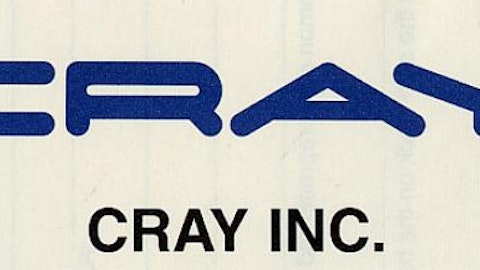Destructive buybacks
Buybacks can become clearly destructive when they are done by the wrong companies and for the wrong reasons, and Hewlett-Packard Company (NYSE:HPQ) is a textbook example about that. As management was becoming concerned over stagnating growth due to the mobile boom which was hurting PC sales, the company turned to share repurchases to artificially increase earnings per share, especially in 2010 and 2011.

This didn´t work out at all, margins continued decreasing due to falling prices and lackluster sales in the commoditized PC industry, so the big buybacks the company implemented in years like 2010 and 2011 are now looking like an expensive mistake.
When the business is being challenged by changing industry conditions, distributing cash to shareholders is hardly the safe thing to do. Besides, if fundamentals are deteriorating, it becomes much harder to tell if the company is in fact undervalued or if it’s the typical value trap situation in which a cheap stock continues getting cheaper over time because the company can´t manage to overcome its problems.
Hewlett-Packard Company (NYSE:HPQ) is trying to reinvent itself by reducing costs, restructuring operations and increasing its presence in businesses with higher profitability like software and services. But CEO Meg Whitman has been quite explicit on the fact that the company has a long and rocky road ahead, her turnaround plan will take until 2016, and many different things need to go well for it to succeed.
The company is facing an enormous amount of uncertainty regarding its long term relevance or even its viability, and it has substantially increased its financial leverage due to ineffective acquisitions and share buybacks over the last years. Hewlett-Packard Company (NYSE:HPQ) should be spending huge amounts of money in research and development – or assertive acquisitions – in order to develop the technologies to move beyond the lackluster PC industry, but instead it needs to monitor its financial resources closely and try to reduce leverage as much as possible so it can stay out of financial trouble.
Bottom line
Repurchases are neither a good or bad thing for investors on a standalone basis. Depending on aspects like the company´s fundamentals, its financial resources and the valuation of the stock, they can be an efficient way to distribute capital to investors while increasing shareholder value or a destructive and dangerous policy focused on short term goals. Like is usually the case with these sorts of things, looking into each case in full detail is the best approach to evaluating buybacks.
The article How to Tell if Buybacks are Creating or Destroying Shareholder Value originally appeared on Fool.com and is written by Andrés Cardenal.
Andrés Cardenal owns shares of Berkshire Hathaway. The Motley Fool recommends Berkshire Hathaway and Coca-Cola. The Motley Fool owns shares of Berkshire Hathaway. Andrés is a member of The Motley Fool Blog Network — entries represent the personal opinion of the blogger and are not formally edited.
Copyright © 1995 – 2013 The Motley Fool, LLC. All rights reserved. The Motley Fool has a disclosure policy.





